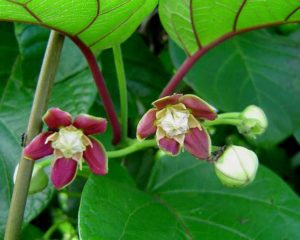Some plants are underused, one of them is Ambunu Plant in Nigeria. In fact, in the whole of Africa. The benefits that can be derived from this plant varies from culinary, to cosmetic, and medicinal. However, just like we have neglected most of the herbal privileges we have as a continent and nation for the more dangerous and costly synthetic products, Africa has put Ambunu plants on a back bench.
[ninja_tables id=”66497″]
However, due to the challenge women face in treating their hair with shampoos and conditioners that does not leave them more damaged in the long run, the use of Ambunu leaves from Ambunu plants have resurfaced in recent times. Its popularity has now grown so much that it is being exported for cosmetic use overseas.
In this article, we will see the components of the Ambunu plant in Nigeria. We will also highlight the different ways people use Ambunu plant in Nigeria and touch on the benefits you can get from using this herb. Also, expect to see the components of the Ambunu plant, that is, what makes it effective at what it does.
The Ambunu Plant
The Ambunu plant is an annual flowering plant that bears resemblance to sesame, which is why it is also called false sesame. It grows in regions of tropical and sub-tropical climate, essentially it can grow in all of Africa, but also needs a good amount of sand in the soil to do well. The plant is slim and can grow to a height of about 60 cm, even though there has been record of growth of up to 100 cm.
It has flowers that can appear as pink, lilac or mauve. Its fruit also bears resemblance to the true sesame fruit – capsules that are flat. The only difference is in the slender horns that are present on Ambunu fruit but not on sesame.
It is commonly cultivated in the northern and southern parts of west Africa, such as Senegal, Mozambique, Botswana, Tanzania, Chad, and the Democratic Republic of Congo. Its cultivation has spread to other parts of Africa, one of the reasons it is now wide spread.
Chemical Component of the Ambunu Plant
Research on the constituent chemicals, responsible for the diverse use of Ambunu plant in Nigeria and other parts of Africa is unavailable as of today. Therefore, it is difficult to back any claim of its efficacy up with scientific reasons. However, due to the effect it has been known to have on people who use it, it has some consistencies with other herbal plants, especially with sesame.
Ambunu is an antioxidant, antibacterial, and is rich in saponin, phenolics, flavonoids, and alkaloids. These chemicals are evident in its use as medicine for treating diarrhea, leprosy, and preserving scalp health.
- Phenolic compounds in Ambunu is responsible for the antioxidant properties it has. It helps to get rid of toxins in the body, and consequently improve cell functions. These compounds also aid in slowing the ageing process and reduces inflammation.
- Alkaloids are naturally occurring compounds in many living organisms. They have a wide range of application, including their use as antimalarial, antibacterial, analgesic, and antiasthma, among other things. Alkaloids can be toxic but when used right, their benefits are limitless.
- Saponins are the compounds responsible for forming lather in soaps when agitated in water. Ambunu passes as a shampoo and conditioner due to this property, halping to remove excess sebum from the hair and scalp.
Uses of Ambunu Plant in Nigeria
As an analgesic
Ambunu plant in Nigeria is an effective medication against stomach ache, upset, and diarrhea. The presence of alkaloids and flavonoids help in bringing the abnormal state of the stomach to a reduced state till normalcy is returned.
It is also effective in controlling inflammation.
As an antibacterial
Bacterial infections have been treated in the rural areas of West Africa by using the extracts of Ambunu plant. Its antibacterial property is attributed to the phytochemicals, such as alkaloids and other chemical compounds in the plant, especially the leaves.
Ambunu plant in Nigeria is an effective medication against bacterial skin infections. The extract of the leaves is usually rubbed against the affected skin area and it begins to dry up after some time, returning the skin to health.
Culinary purposes
Ambunu plant leaves and seeds are commonly consumed in many parts of Africa. In some places, they go by different names, making it difficult to unify the uses of this herb. However, the leaves are commonly chopped into bits and mixed with groundnut flour, spiced with onions, tomatoes, and salt to make a type of porridge.
Also, the seeds can be ground into powder, and sometimes made into paste to be mixed with cassava and beans. It also contains oil that is similar to sesame seed oil. It can be used in making different African salads.
Hair care and treatment
One of the most common use of Ambunu plant in Nigeria is its use as a no poo shampoo and conditioner. Due to the saponin it contains, it moderately lathers to help remove excess sebum from the hair and scalp, allowing the hair follicles get aerated and produce new sebum.
It also treats ageing and keeps the hair lush, strong, and detangled, making styling easier, and preserving the uniqueness of your hair for a longer period without introducing any damaging chemical.
How to Use Ambunu Plant as a Shampoo or Conditioner?
To get the best out of Ambunu plant in Nigeria as a conditioner or shampoo, you need to get the leaves and dry them. You can also use the leaves when they are fresh, provided you have a fresh supply whenever you need to wash your hair.
- Chop the leaves into bits
- Soak the leaves in water. It forms a consistent paste due to the mucilage it contains.
- You can heat the water and leave for about 10 minutes to extract the biochemicals in the leaves.
- Transfer the water into a bottle or applicator. Alternatively, you can use the mixture directly.
- Apply the liquid generously to your hair and wash after 10 minutes.
Conclusion
Ambunu plant in Nigeria may seem like a new discovery but it isn’t. It has been in use for a while in many parts of West Africa, including Nigeria, and has been labelled false Sesame due to its resemblance in morphology and botany to sesame. However, it has many uses, and chief among them is as a shampoo and conditioner.
Ambunu plant is rich in phytochemicals, such as flavonoids, alkaloids, and saponin, which helps to strengthen the hair, reduce greying, reduce excess sebum, and fights against infections of the scalp, such as dandruff. It is also one of the best natural shampoos anyone can use to help with hair that tangles as it makes it soft and easy to manage and style.




